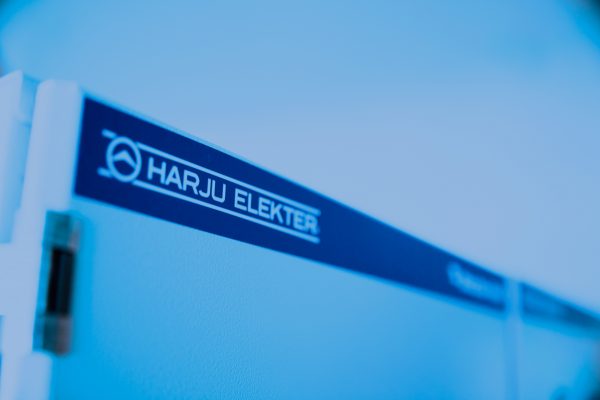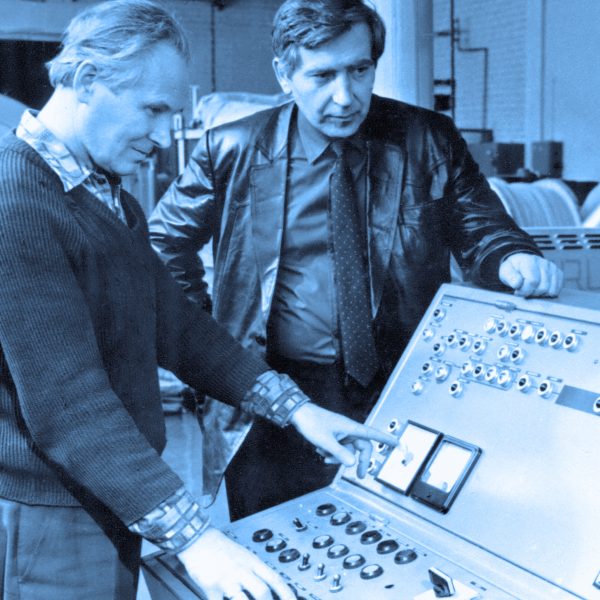Articles of Association
I General Provisions
1.1 The business name of the public limited company (hereinafter company) is AS Harju Elekter Group (abbreviated
from Harju Elekter Group AS).
1.2 The company is seated in the town of Tallinn, the Republic of Estonia.
1.3 The financial year of the company commences on 1 January and ends on 31 December.
1.4 The company together with its subsidiary companies forms a group.
1.5 The company has been founded for an unspecified term.
II Area of Activity
2.1 The areas of activity of the company are:
2.1.1 production of electrical switchboards, panels, consoles, substations and distributing units;
2.1.2 production of technological control equipment and control equipment for production processes;
2.1.3 production of harnesses, connection cables, including fiberoptic cables, and other electrical
equipment and components;
2.1.4 production of telecommunications equipment and parts thereof;
2.1.5 mechanical processing of metals and finishing of metal surfaces;
2.1.6 production of cutting instruments, tools, and iron products;
2.1.7 production of other unclassified metal products;
2.1.8 wholesale and retail sale of household goods, including electrical products;
2.1.9 road transport, including passenger carriage and vehicle rental;
2.1.10 real estate transactions, real estate management, lease;
2.1.11 business and management consultations, management of companies (subsidiaries) as a holding
company, participation in the management of related companies.
2.2 The company may freely choose its areas of activity and the company may enter into all transactions and
carry out all operations not prohibited by law.
III Share Capital, Shares and Reserve Capital
3.1 The minimum share capital of the company is 5,000,000 (five million) euros, and the maximum share capital
is 20,000,000 (twenty million) euros.
3.2 The minimum number of no-par value shares is 8,000,000 and the maximum number is 32,000,000. Each
share grants one vote at the general meeting of shareholders. The company only has registered shares. The
company only has one class of shares, and these give the same rights to the shareholders.
3.3 Contributions to share capital may be only monetary.
3.4 A share may be pledged or encumbered with a usufruct.
3.5 A share may be freely transferred.
3.6 The company may issue convertible bonds by a resolution of the general meeting.
3.7 The company shall form a reserve capital, the amount of which shall be at least one-tenth of the share
capital. One-twentieth of net profit shall be transferred to reserve capital every year until the above amount
is reached.
IV General Meeting of Shareholders
4.1 The general meeting of shareholders (hereinafter general meeting) shall be held at a time and in a place
designated by the management board in concordance with the supervisory board. The supervisory board
shall determine the agenda of the general meeting.
4.2 The management board shall call the annual general meeting not later than within six months after the end
of the financial year. A special general meeting shall be called pursuant to the procedure provided by law.
4.3 The shareholders shall be notified of the annual general meeting no later than three weeks prior to the
general meeting. A notice of the general meeting shall be published in at least one national newspaper no
later than three weeks prior to the general meeting.
4.4 The general meeting has a quorum if more than one-half of the votes represented by the shares of the
company are present. If the required number of votes is not represented at the general meeting, the
management board shall call a new meeting with the same agenda within three weeks, but not earlier than in seven days. The new general meeting is competent to adopt resolutions regardless of the number of
votes represented at the meeting.
4.5 A resolution of the general meeting shall be adopted if more than one-half of the votes represented at the
general meeting are in favor, unless otherwise prescribed by law or these articles of association.
4.6 Resolutions on the amendment of and ratification of new articles of association, on changing the amount
of share capital, on the removal of a member of the supervisory board, and on the dissolution, division,
merger, and transformation of the company shall be adopted if not less than two-thirds of the votes
represented at the general meeting are in favor.
4.7 The shareholders may vote on the draft resolutions prepared in respect to the items on the agenda of a
meeting of shareholders using electronic means prior to the meeting or during the meeting if it is specified
in the notice convening the general meeting. The procedure for electronic voting shall be determined by
the management board. The notice convening the general meeting shall specify whether electronic voting
is possible and the manner for examining the procedure of electronic voting established by the
management board. The shareholder who voted using electronic means shall be deemed to have taken part
in the meeting and the votes represented by the shareholder’s share shall be accounted as part of the
quorum of the meeting unless otherwise provided by law.
V Supervisory Board
5.1 The supervisory board plans the activities of the company, organizes the management of the company, and
supervises the activities of the management board. The supervisory board shall present the results of
control to the general meeting.
5.2 The supervisory board consists of 3 (three) to 7 (seven) members. The general meeting elects the chairman
and members of the supervisory board for a term of 5 (five) years. The members of the supervisory board
elect a chairman and, if necessary, a vice chairman from among themselves.
5.3 A supervisory board meeting has a quorum if more than one-half of the supervisory board members are
present. A resolution is deemed adopted if more than one-half of the members present voted in favor.
Upon an equal division of votes the chairman of the supervisory board has the deciding vote.
5.4 The consent of the supervisory board is required for entering transactions on behalf of the company which
are beyond the scope of everyday economic activities, including:
5.4.1 the acquisition or alienate of a holding in other associations;
5.4.2 the foundation, or dissolution of a subsidiary, the appointment of a representative of the company to the
supervisory board of a subsidiary or a related company;
5.4.3 acquisition, transfer, or termination of the business;
5.4.4 the foundation or dissolution of foreign branch;
5.4.5 the acquisition, transfer, or encumbrance of immovable and registered movables. Consent is not necessary
to encumber immovable property with real servitudes.
5.4.6 the acquisition or transfer of non-current assets beyond the scope of the approved annual budget and investment budget;
5.4.7 the making of investments which exceed the amount set for this financial year;
5.4.8 the assumption of loans or debt obligations which exceed the amount set in the budget for this financial year;
5.4.9 the granting of loans or the securing of debt obligations (incl. the grant of guarantees or sureties by the company which
exceed the amount of EUR 500,000.00), if they go beyond the scope of AS’s daily economic activity;
5.4.10 electing and removing the members of the bodies formed by the supervisory board and establishing the work procedure,
unless otherwise provided by law.
5.5 The supervisory board may adopt a resolution to extend or restrict the list of transactions for which the consent of the
supervisory board is required for the management board.
5.6 The supervisory board is competent to decide upon the remuneration of members of the management
board of the company, as well as to approve the principles of payment of wages and additional
remuneration to the employees of the company.
5.7 The supervisory board approves the annual budget and investment budget of the company, on which basis
the management directs the economic activities of the company.
5.8 The supervisory board is also competent to decide upon other matters not placed in the competence of the
management board or the general meeting pursuant to law or these articles of association.
5.9 The Supervisory Board shall have the right, during a period of 3 (three) years from the moment of entry
into force of this wording of the Articles of Association, to increase the share capital by way of a monetary
contribution to the share capital. The Supervisory Board may not increase the share capital to more than
1/10 of the share capital registered at the time of entry into force of this wording of the Articles of
Association.
5.10 In order to perform its functions, the supervisory board may examine all the documents of the company,
as well as to check the correctness of accounting, the existence of assets, the compliance of the company’s
activities with law, the articles of association and the resolutions of the general meeting.
5.11 In the absence of the chairman of the supervisory board the chairman shall be replaced by the vice
chairman, or a supervisory board member authorized by the chairman.
5.12 Supervisory board meetings shall take place as necessary, but not less frequently than once in a calendar
quarter. Minutes shall be taken of a supervisory board meeting. The minutes shall be signed by all
supervisory board members present at the meeting, the chair of the meeting and the minutes secretary
VI Management Board
6.1 The management board is a directing body of the company which represents and manages the company
and organizes its activities and accounting.
6.2 The management board consists of 1 (one) to 5 (five) members. The supervisory board elects the chairman
of the management board of the company and, at his or her proposal, the management board members
for a term of three years.
6.3 The chairman of the supervisory board shall enter into employment contracts with the chairman and
members of the management board on behalf of the company in accordance with the resolution of the
supervisory board.
6.4 The management board shall comply with the resolutions of the supervisory board upon performing its
management functions. The management board is obliged to act in the most economically purposeful
manner.
6.5 The management board shall prepare and submit to the supervisory board for approval the budgets
specified in clause 5.7. of these articles of association.
6.6 The management board may enter into transactions which are beyond the scope of everyday economic
activities only with the consent of the supervisory board.
6.7 Members of the management board of the company may not participate in voting if approval of the
conclusion of a transaction between the member and the company is being decided, and if approval of
the conclusion of a transaction between the company and a legal person in which the management board
member or those close to him or her have a qualifying holding is being decided.
VII Liability of Supervisory Board and Management Board
7.1 Members of the supervisory board and management board shall be liable for violation of the
requirements of law or the articles of association and for failure to perform their duties pursuant to the
applicable laws of the Republic of Estonia.
VIII Right of Representation
8.1 Every member of the management board may represent the company in all legal acts.
IX Economic Activity Reports
9.1 The management board shall submit to the supervisory board a review of the economic activities and
economic situation of the company at least once every three months and shall forthwith provide notice
of any substantial deterioration of the economic situation of the company and of other important
circumstances relating to the economic activities of the company.
9.2 After the end of the financial year, the management board shall submit the annual accounts, activity
report and profit distribution proposal together with the auditor’s report to the supervisory board for
review and to the general meeting for approval.
9.3 The supervisory board shall review the annual report and prepare a written report on it, which shall be
submitted to the general meeting. The supervisory board shall indicate in the report whether it approves
the report prepared by the management board and how the supervisory board has organized and directed
the activities of the company.
X Auditor and Special Audit
10.1 Auditors shall be appointed by the general meeting, who shall also determine the number of auditors and
the procedure for their remuneration. An auditor may be appointed for a term or for performing specific
tasks.
10.2 The conduct of a special audit of the management and proprietary status of the company, its conductors
and the procedure for their remuneration shall be decided by the general meeting, if this is demanded by
shareholders whose shares represent not less than one-tenth of the share capital.
10.3 The conductors of special audit shall submit a report on the results of the special audit to the general
meeting.
XI Distribution of Profit
11.1 The profit distribution resolution shall be adopted by the general meeting, and it shall set out:
11.1.1 the net profit;
11.1.2 transfers to reserve capital;
11.1.3 transfers of profit to other reserves;
11.1.4 the amount of profit to be paid to shareholders;
11.1.5 the use of profit for other purposes.
11.2 The supervisory board may amend the profit distribution proposal prior to submitting it to the general
meeting.
11.3 The shareholders shall be paid a part of the profit (dividend) in accordance with the book value of their
shares.
11.4 Dividends may be paid on the basis of the approved annual report. The procedure for the payment of
dividends shall be set out in a resolution of the general meeting.
11.5 The management board submits a dividend payment proposal concorded with the supervisory board. The
general meeting approves the number of dividends.
11.6 The management board may cease to send dividend notices to shareholders to whose bank account
dividends cannot be transferred, if the making of payments has proved impossible for two consecutive
years.
XII Merger, Division, Transformation and Liquidation
12.1 The merger, division, transformation or liquidation of the company are subject to the procedure provided
by law.
12.2 The liquidators of the company shall be the management board members, unless otherwise decided by
the general meeting.
XIII Final Provisions
13.1 In matters not regulated by these articles of association the company shall be guided by the applicable
laws and legislation of the Republic of Estonia.
These articles of association have been ratified by the resolution of the general meeting of shareholders of Harju
Elekter Group AS on the 24th of April 2025.
Tiit Atso
Chairman of the Management Board







